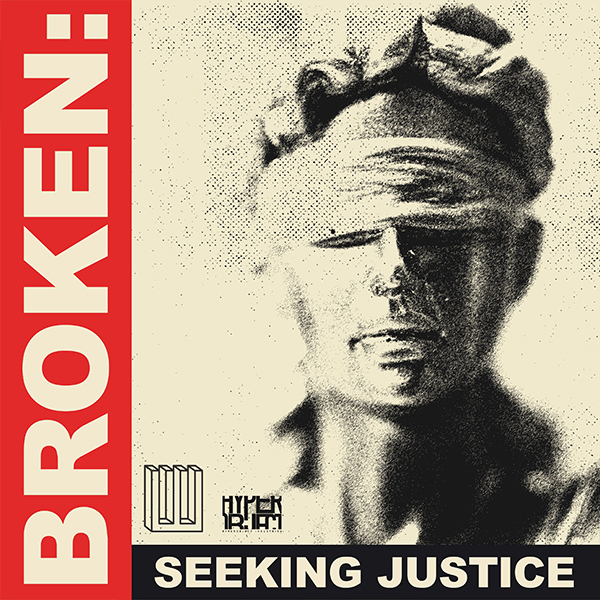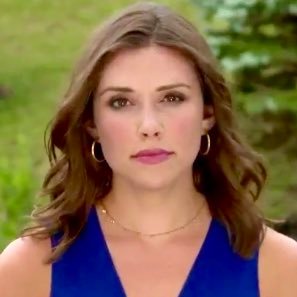Tara Palmeri is an investigative journalist and former White House Correspondent for ABC News and Politico. She’s also a survivor of sexual violence.
Tara hosts season two of the podcast, BROKEN: Seeking Justice, which dives into Jeffrey Epstein’s systematic abuse of girls and young women, and the institutions and individuals that enabled him. BROKEN: Seeking Justice premieres September 16; subscribe to get the first episode as soon as it's available. Watch the trailer below!
RAINN’s Christy Rozek sat down (virtually) with Tara to discuss her investigation into the case, how it echoes her own experiences, and tips for journalists on trauma-informed interviewing.
This interview has been condensed and edited for clarity.
You say on the podcast that you’ve never cared about a story more in your life. What inspired you to get involved with this case and host season two of Broken: Seeking Justice?
I always cared about this story because I felt it wasn’t being covered the right way, except for the amazing work of Julie Brown, who broke the case. A lot of documentaries and podcasts focused on Epstein’s wealth—that he was a man of mystery, a powerful friend. There wasn't enough about the story of the survivors. I thought they had stories that should be told.
This isn’t about Epstein. This is about the strength of the survivors who live with the trauma of this abuse every day and demand justice, and it’s about the accomplices and enablers who still haven’t faced justice.
In season one, we learned how girls, teenagers, and young women were often carefully chosen and groomed for abuse by Epstein. How do power imbalances and systematic grooming come into play in this story?
I understand what it’s like to feel powerless, to be a young woman, taken advantage of, and to know that the person who did it will face no repercussions because they have more power than you. I had a similar experience to these women when I was younger, and I always felt that I couldn’t say anything about it because the abuser was too powerful, there would be nothing I could do about it.
The entire Epstein story is about grooming. So many of these girls were children—Courtney Wild was wearing braces, she was in middle school when the abuse started.
Part of grooming is the purposeful choosing of victims who a perpetrator sees as vulnerable. Many of these children came from dysfunctional families. Abuse was already part of their lives. So many of the girls he picked were living in such bleak and desperate situations, that they believed they were lucky to be abused by him. He made them feel that they were complicit in the crimes he committed against them.

There are so many adults that made the decision to keep letting these girls down. There are so many injustices in this case and so many times when someone could have done the right thing and it didn’t happen.
The incredible thing is that these survivors took agency in their own stories. When they were denied justice, they went out and tried to start solving the crimes for themselves. That’s incredible.
It’s a beautiful thing to see them now as strong, powerful women. It is healing to feel like you have some sort of power in the process of your justice.
One of the survivors actually inspired me to make a phone call I never thought I would make to an investigation into my own experience. Working with these incredible women has changed me and helped me with my own healing.
In season two, you go deeper into how Ghislaine Maxwell and others were not only enablers, but active participants in Epstein’s continued abuse. What surprised you?
I never understood Ghislaine until I did research on her father, Robert Maxwell. She was certainly abused, not sexually, but emotionally abused by her father. She was extremely desperate for Epstein’s attention and would do anything to control him—and recruiting girls, that was her control over him. She treated everyone around her terribly, and these girls and young women most of all. She thought of them as disposable.
What have you learned about how parents, teachers, and other adults can look out for warning signs and be there to support their children if something does happen?
A lot of the people who were abused had been abused before, often by family members. Other times, the family members were aware and complicit in what was happening. I’ve seen a lot of reconciliation with family, which has been a big part of the healing for a lot of these survivors.
For parents, watch for change in behavior, change in interest, depression, withdrawing, acting out, irregular behavior. These are all signs someone is being abused or has experienced abuse.
What do journalists and reporters need to know about trauma-informed interviewing techniques? In your work, how do you balance thorough reporting with ensuring that you are sensitive to survivors?
Having had that experience of abuse myself has made understanding trauma-informed interviewing more relatable for me. I also spoke to experts about how to interview someone who is a survivor of abuse, which I would recommend for journalists and reporters.
It comes down to this: Don’t push too hard, let them tell their story at their pace, make them comfortable, and take breaks. Show that you are respecting their story, mirror the words they use, let them know you can delete parts they aren’t comfortable sharing. Have compassion and realize you’re asking someone to go back in time to one of their darkest places.

There are also certain words you should avoid. Don’t use terms like “allegedly” or “claimed” when you’re talking with someone about their experience. It can be really triggering for someone who is already struggling with self-blame to hear those words about their story.
Don’t include graphic details of the abuse. There’s no need for it. What’s important here is understanding the systems and institutions that allowed the abuse, the people who perpetrated and enabled it, the grooming that occurred, and the healing journey of the survivors.
What do you hope listeners will take away from BROKEN: Seeking Justice?
I hope that when people listen, whether they’ve experienced abuse or not, they hear a story of survivors standing together for the justice they deserve and fighting against a society that treats people with money differently than those without.
What is your message to survivors?
Half the time, healing is just about trying to convince yourself that it wasn’t your fault. I wasted years on self-hating and thinking that I did something wrong, not knowing that the person who abused me, abused others. For me, and others who’ve experienced this, it can be hard to believe in ourselves, but when we hear that it’s happened to others, we start to demand justice.
Always remember: It wasn’t your fault, you are worthy, what happened to you wasn’t right.